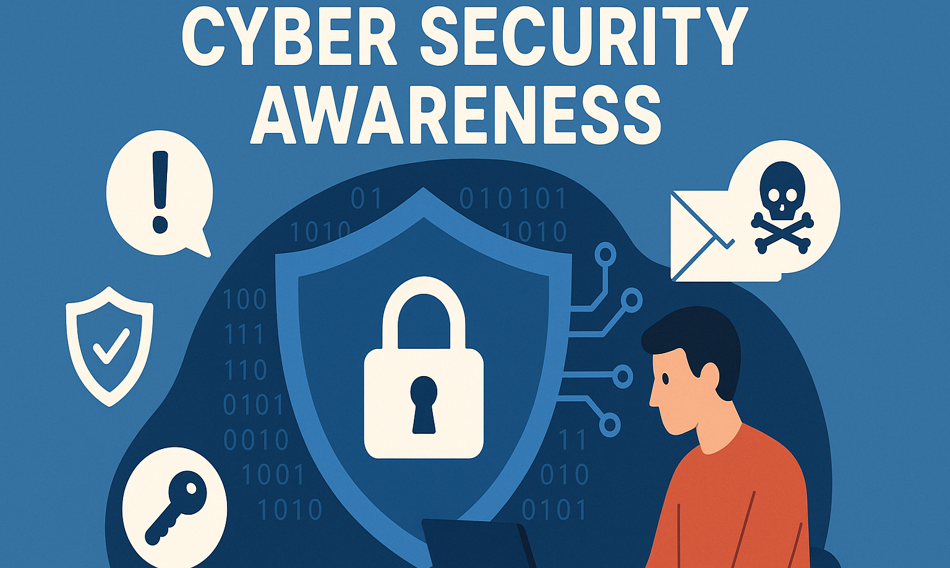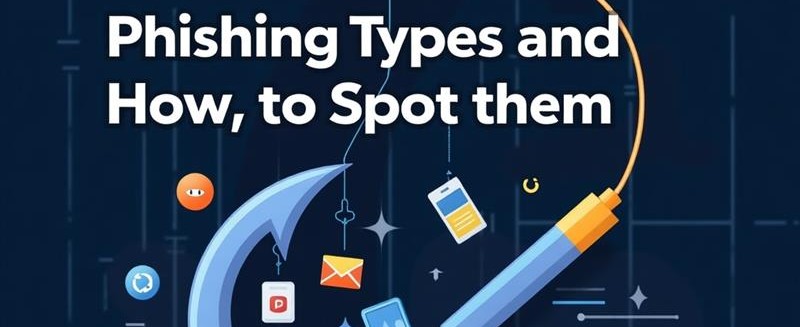Cyber Security Tips Everyone Should Know in 2025
In the era where data is the new cyber currency and AI driven threats are increasing. Cybersecurity is now essential regardless of your status as a professional, student, or business owner. Knowing how to safeguard our digital footprint is essential in 2025, it is imperative that you understand how to protect your data in 2025.
Here are some of the most important cybersecurity tips everyone must follow to stay protected:-

- Enable Multi-Factor Authentication (MFA)
Passwords alone are no longer enough. Always use MFA for all your account passwords are insufficient on their own. To provide an additional degree of security, including banking, social media, and email. Apps that use biometric verification and authentication, such as Google Authenticator, Microsoft Authenticator, or Authy, are more secure than SMS-based authentication, which can be hijacked via a SIM-swapping attack.
- Use Strong, Unique Passwords
Don’t use the same password for different sites. Create and store complex, unique passwords for every site using the password manager.
- Keep Your Software Updated
Older versions of operating systems and apps are susceptible to known exploits. Always enable auto-updates for your OS, browsers, antivirus, and other software, and always set them to update automatically.
- Watch Out for Phishing and Deepfakes
AI-generated deepfakes can now imitate voices and videos, and phishing scams are becoming increasingly sophisticated. Before opening attachments or clicking links, always confirm the sender. When in doubt, connect with the person directly.
- Secure Your Wi-Fi Network
Always use a strong password for your router, remember to change the default admin credentials as they could be easily brute forced, and enable WPA3 encryption if available. Avoid using public Wi-Fi without a VPN.
- Use a Trusted Antivirus and Firewall
Antivirus and firewall software are still essential for protecting against ransomware, malware, and other harmful activity in 2025. Make use of trustworthy solutions and keep them up to date.
- Beware of AI-Powered Scams
The development of AI has made scams seem frightfully realistic. Be wary and do your own research if you receive a phony voicemail from a “bank” or a deepfake video requesting money.
- Regularly Back Up Your Data
Make use of offline and cloud-based backups to shield your data from loss or ransomware. To guarantee consistency, automate the procedure.
- Limit Data Sharing on Social Media
Your online posts are used by cybercriminals to obtain personal information for identity theft or scams. Think before you post and keep your accounts private.
- Educate Yourself and Others
Being aware of cybersecurity is an ongoing process. Keep abreast of developments, educate yourself on the most recent dangers, and impart knowledge to friends, family, and coworkers.
Conclusion
Your defenses can keep up with the rapid evolution of cyber threats. You can significantly lower your risk by adopting these fundamental cyber hygiene practices. Being digitally secure in 2025 means being proactive and intelligent rather than being afraid.
Be careful. Keep yourself informed. Keep ahead.




